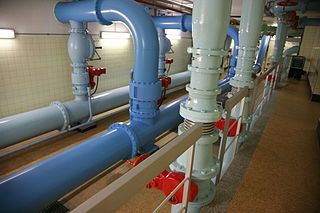From Guest Blogger Kristine: Innovative New Tech Driving Water Recycling Up the Agenda

Thanks to technology from Mitsubishi Electric, companies that are in the water waste and recycling industrycan find more economical ways to recycle water and manage more of it. This technology is the membrane separation method of recycling water for mission-critical industrial processes. It offers the merits of space and energy savings, a direct control of water purity, a relatively low cost of operation, and perhaps the best point of all no toxic chemical processing.
When the Mitsubishi Electric Transmission and Distribution Systems Center, which is in charge of developing and producing devices that ensure a stable supply of high voltage and electrical current, implemented the major refurbishing of its main facility location after 35 years of operation, it turned to membrane separation technology for a new wastewater treatment system as a top of the line solution to achieve its goal of using from 30% utilisation of recycled water to 100%.
In plants like Mitsubishi Electric and others in the waste management business in the past after washing performed during the process, the water was detoxified and some was reused in the toilet system. The rest was then discharged as wastewater. The decision to implement a new system provided an opportunity to strive for 100% recycling of water used in the metal plating process. It was in 2010 that the new water treatment system for the metal plating operation and water recycling facility came on line, achieving a substantial goal of 70% reuse of water in the metal plating process, and 30% reused in the toilet system. The new membrane separation method will push them closer to the 100% resuse mark and soon be able to make its way into the market for other water recycling companies.
The environmental impaact for this huge, especially considering the volume of water used in energy and water intensive industries such as metal fabrication and recycling. Now that it has been proven, and that there is empircal evidence of the financial reward, it should only be a matter of time before its adoption on a wider scale.
This type of technological advance is a sign of the growing importance of the environment as an engine for the economy. The days of ‘going green’ for the sake of publicity or as part of a company’s social charter are gone. Greening manufacturing processes and the supply chain is often as beneficial to the bottom line as it is to the environment. And it is catching on. It may be somewhat anecdotal, but if the number of vacant positions in environmental and green tech roles on Randstad CPE is anything to go by, then we’re going to see a lot more advancements such as Mitsubishi’s.
The sooner, the better. For business, and the environment.
